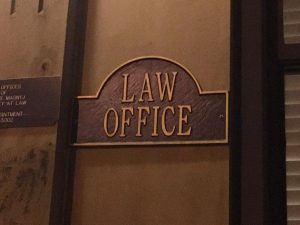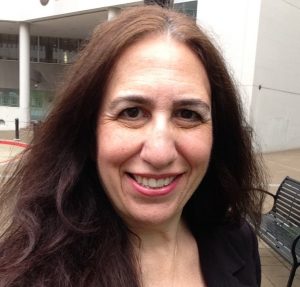The Long Tail Of New York’s Bonafide Office Rule -- And What It Means For The Future Of Solos
New York's office rule is a blow to solos and a potential boon to #Altlaw.
 Cue The Clash.
Cue The Clash.
For the past nine years, New Jersey-based, New York-licensed lawyer Ekaterina Schoenefeld fought the law — specifically, NY Judiciary Law §470, which requires non-resident New York-barred lawyers to maintain a bonafide office in New York to practice there, but does not demand the same of New York-barred lawyers who live in the state. Although Schoenefeld initially prevailed before a federal district court in her constitutional challenge to Section 470 claiming a violation of the Privileges and Immunities Clause of the United States Constitution, ultimately, the law won.
A year ago, the Second Circuit, (after certifying the question of Section 470’s scope to the New York Court of Appeals) found Section 470 constitutional. The court determined that Section 470 was not intended for protectionist purposes — (for instance, to throw up obstacles to an out of state NY-barred lawyer from luring NY clients to New Jersey or Pennsylvania with lower cost rates) — but instead, to ensure that clients could effect personal service on a lawyer who committed malpractice. (Apparently, the Second Circuit and its clerks were absent that day in Civil Procedure 101, where they would have learned something called the long-arm statute. And besides, how likely is it that the lawyer who raided a client’s million-dollar trust fund is going to stick around in his bonafide office, waiting to be served?). The Second Circuit also dismissed the notion that the added cost of a New York office was particularly burdensome to an out-of-state lawyer. Schoenefeld filed a cert petition at SCOTUS seeking review of her case, but last week, the High Court denied cert, bringing the case to its unfortunate conclusion.

Navigating Financial Success by Avoiding Common Pitfalls and Maximizing Firm Performance
Although the Schoenefeld case is over, its long tail will drag on and on and on — and not in a good way either. In the nine years since Schoenefeld began her crusade, the traditional office is on the verge of obsolescence. Interest in co-working space — at least, according to Google Trends is on the rise. Yet at a time when office space has never been less important, the Schoenefeld ruling elevates the significance of office space by making it a requirement for non-resident New York lawyers who want to handle cases in the state. As a result, at a time when larger firms can cut costs by getting by with less space, solos like Schoenefeld who seek to serve clients in New York from an adjacent space must take on additional costs.
What’s more, while the regulators are sleeping with their arms wrapped tightly around solo and small firm lawyers’ necks, to ensure that they obey century-old laws, #Altlaw is breaching the gate. It’s only a matter of time before Legal Zoom or Avvo or some other #Altlaw start-up opens up a one-room, non-lawyer a coworking space in Manhattan, fielding calls from clients all over the country in need of a New York lawyer to represent them in court. That #Altlaw business can refer those lawyers out at flat rates and let them use the #AltLaw address as a mailing address to satisfy Section 470. Problem solved — without need for resident NY solo or small law firms.
In the aftermath of the Schoenefeld ruling, the New York State Bar Association has convened a working group to study the issues raised by the case. Unfortunately, by the time the committee releases its report — five years hence — out-of-state practitioners like Schoenefeld who hoped to conveniently provide clients just over the New York border with advice and counsel on New York laws will either have given up their New York practices, or hiked their rates so much that they’re no longer able to offer cost competitive services for their clients. Yet another example of how the legal profession is killing its own.
Sponsored

Legal AI: 3 Steps Law Firms Should Take Now

Is The Future Of Law Distributed? Lessons From The Tech Adoption Curve

Navigating Financial Success by Avoiding Common Pitfalls and Maximizing Firm Performance

Legal AI: 3 Steps Law Firms Should Take Now
 Carolyn Elefant has been blogging about solo and small firm practice at MyShingle.comsince 2002 and operated her firm, the Law Offices of Carolyn Elefant PLLC, even longer than that. She’s also authored a bunch of books on topics like starting a law practice, social media, and 21st century lawyer representation agreements (affiliate links). If you’re really that interested in learning more about Carolyn, just Google her. The Internet never lies, right? You can contact Carolyn by email at elefant@myshingle.comor follow her on Twitter at @carolynelefant.
Carolyn Elefant has been blogging about solo and small firm practice at MyShingle.comsince 2002 and operated her firm, the Law Offices of Carolyn Elefant PLLC, even longer than that. She’s also authored a bunch of books on topics like starting a law practice, social media, and 21st century lawyer representation agreements (affiliate links). If you’re really that interested in learning more about Carolyn, just Google her. The Internet never lies, right? You can contact Carolyn by email at elefant@myshingle.comor follow her on Twitter at @carolynelefant.
Sponsored

The Business Case For AI At Your Law Firm









